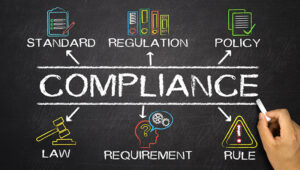Many board members neglect the risks of self-managed HOAs. These risks can put an entire association in jeopardy, threatening not only its operations but also its funding. It is important to understand these risks so that board members can avoid them. Alternatively, HOA boards can decide to switch to professional management.
The Most Notable Risks of Self-Managed HOAs
First, it is important to define a self-managed HOA. Self-management is an approach wherein HOAs don’t utilize professionals to run the community. In other words, homeowners (in the form of board members) rely on their own skills, knowledge, and efforts to manage an association.
In a self-managed HOA, the HOA board oversees all of the tasks and roles, including but not limited to:
- Maintenance and repairs
- Accounting and collections
- Financial management
- Homeowner communication
- Complaint and dispute resolution
- Work order management
- Vendor coordination
- Violations enforcement
- Legal compliance
- Administrative work
This is a method that many homeowners associations take. While nothing is inherently wrong with self-management, the lack of professional management comes with its fair share of troubles.
Here are the risks of self-managed homeowners associations.
1. Risk of Mismanagement
Regarding the pros and cons of a self-managed HOA, a big check on the pro side is autonomy. Board members have full control over decisions concerning the community. However, autonomy also comes with a con.
Boards with too much freedom and power are likelier to abuse them. Some directors may push their agendas and force their decisions on the rest of the board. Even board members use intimidation and harassment tactics to get their way. In contrast, with a professional manager, there is someone who can act as a neutral third party.
Too much power is not the only problem, though. Even board members with the purest intentions may fall to mismanagement due to a lack of time or expertise. Not all directors have the luxury of devoting their undivided attention to the association. Moreover, managing a community requires more than just a willingness to serve — it also requires a certain level of skill.
2. Risk of Non-compliance
 A big risk of self-management for HOAs is the risk of non-compliance with the law. Like it or not, homeowners associations are governed by federal, state, and local laws. There are certain requirements and procedures that HOAs must follow. Board members don’t always comprehend these requirements fully, though. Sometimes, they aren’t even aware that such requirements exist.
A big risk of self-management for HOAs is the risk of non-compliance with the law. Like it or not, homeowners associations are governed by federal, state, and local laws. There are certain requirements and procedures that HOAs must follow. Board members don’t always comprehend these requirements fully, though. Sometimes, they aren’t even aware that such requirements exist.
A typical example is the requirement to fund reserves. In a handful of states, the law mandates that HOAs maintain reserve accounts to cover the cost of major repairs and replacements. Failure to comply with this requirement can result in liability and even monetary penalties.
Even if board members understand the laws governing HOAs, there is no guarantee that they can keep up with new ones. Laws change all the time. Legislators may draft new bills that will ultimately affect homeowners associations. One such example is in North Carolina, where changes are under consideration. A self-managed board must stay up-to-date on all law changes, whereas a professionally managed one can turn to their manager for guidance.
3. Risk of Apathy or Indifference
Being a board member demands a lot of time and effort. Above all, though, it requires care and concern. A member who isn’t eager to serve and doesn’t have the HOA’s best interests at heart has no place on the board. Such a board member would only be ineffective, self-serving, or indifferent.
In comparison, a professional manager is paid to manage the association. Overseeing the HOA’s operations is part of their job, which makes them more effective and determined. It also makes them more neutral about decisions, as they are not community residents.
4. Risk of Miscommunication
 One of the more overlooked risks of self-managed HOAs is the risk of miscommunication or lack thereof. Communication is a key contributor to success in any organization, including HOAs. Board members must communicate with each other and the rest of the community. Homeowners should be kept in the loop about HOA matters.
One of the more overlooked risks of self-managed HOAs is the risk of miscommunication or lack thereof. Communication is a key contributor to success in any organization, including HOAs. Board members must communicate with each other and the rest of the community. Homeowners should be kept in the loop about HOA matters.
Unfortunately, self-managed boards often fall victim to poor communication. They fail to send out notices on time and fail to respond to complaints or emails. However, communication is easy to check off with a professional manager or management company. They can be responsible for all correspondence, including fielding concerns from homeowners.
5. Risk of Lawsuits
Insurance plays an essential role in the safeguarding of an association’s assets. Without proper insurance coverage, an HOA would bleed money if it ever faces perils or liability.
Lawsuits are an unavoidable part of managing an HOA. Homeowners sue their association and HOA board more often than people think. Without insurance, the HOA would have to tap into its funds to pay for legal fees and, potentially, financial damages. Board members also require sufficient D&O coverage to secure protection from lawsuits.
It is the HOA board’s job to ensure that the association has adequate insurance. However, self-managed boards don’t always know how to read insurance policies and what to watch out for. Some associations have bare minimum coverage, not knowing that their interests are grossly underinsured. With a professional manager, though, insurance can be a breeze.
6. Risk of No Transparency
Circling back to the first point, self-managed boards often lack accountability and transparency because they don’t have a neutral party keeping them in check. This typically results in issues with fund mismanagement, such as fraud, theft, and embezzlement. There is no shortage of news reports of HOA board members stealing from their own association.
7. Risk of Operational Inefficiency
 An effective association usually runs with the help of a professional manager or management company. Of course, that’s not to say this is impossible to achieve with a self-managed board. Inefficiency is just one of the more common risks of self-managing an HOA.
An effective association usually runs with the help of a professional manager or management company. Of course, that’s not to say this is impossible to achieve with a self-managed board. Inefficiency is just one of the more common risks of self-managing an HOA.
Board members are volunteers who often lead personal and professional lives outside of the community. Their association duties are not always a priority. With the help of a manager, though, a self-managed board can focus on the bigger picture, leaving the day-to-day, administrative work to the manager.
8. Risk of No Advocacy
Sometimes, a self-managed board operates with tunnel vision, refusing or failing to recognize the views of others. When that happens, homeowners don’t have a voice in their community, leaving them unsatisfied and frustrated. With a community manager, homeowners can have someone to advocate for them. They can direct their concerns to the manager, who can act as a third-party neutral.
9. Risk of Interpersonal Conflicts
While a harmonious HOA board is important to success, closeness and a greater sense of familiarity can often lead to interpersonal conflicts. These conflicts might turn ugly, impacting the dynamics of the board and even the residents. Decisions can even be held hostage.
With hired HOA management, though, there is a clear line separating the personal from the professional. Managers are trained to remove emotions from the equation, approaching every decision and action with a business-like mindset.
10. Risk of Lower Property Values and Fewer Buyers
Potential buyers may balk at the decision to join an HOA community when they find out that it is self-managed. Such apprehension is normal, especially when investments and property values are on the line. Many buyers don’t like it when an HOA doesn’t have professional management because they fear that the board holds too much power. Others don’t like it because they believe that professionals are more capable of running a community than volunteers.
Benefits of a Self-Managed HOA
With so many disadvantages, one might wonder whether there are any advantages to self-management. While there are a few, they don’t always outweigh the bad.
- More Autonomy. Without an HOA manager, the HOA board calls all the shots and won’t need to consult with anyone before making decisions. This is still possible even with an HOA manager, though, as the board can establish boundaries and limit manager control.
- Cost Savings. Professional management doesn’t come free. Homeowners associations can save money on monthly expenses by choosing to manage their own communities.
- Deeper Connections With Residents. Board members can foster more meaningful, personal relationships with residents. This is possible without the barrier of a community manager in between. However, keep in mind that an HOA board can still accomplish this even with professional management.
Should You Go for Self-Management? Factors to Consider
Before jumping into self-management, HOA boards should consider the following factors:
1. Risks vs Funding
Many HOAs choose self-management to save on costs. However, it’s important to weigh these savings against the risks of not having professional management. Although self-management can lower monthly fees slightly for each owner, it might lead to a considerable drop in your property’s overall value without professional oversight.
2. Community Size
Managing a large community demands considerable effort. For mere volunteers, the task can feel overwhelming. Self-management is more practical for smaller communities, where the workload is more manageable for volunteers.
3. Expertise and Time of Members
Many HOAs opt for professional management because of the technical complexities involved. Self-managing requires members to have expertise in legal issues, financial management, and other key areas. Assigning these tasks to individuals without the necessary experience can lead to significant challenges and inefficiencies.
4. Legal Obligations
Self-managed boards must remember their duty to reduce risks for community members and the public. This means board members can be held responsible for their decisions. Although the HOA’s governing documents may provide some protection against personal liability, members can still take legal action if mismanagement occurs.
Looking for the Right Partner
As you can see, the risks of self-managed HOAs are plentiful and extensive. While it is possible for a self-managed board to navigate these risks and avoid them completely, having a professional manager increases the likelihood of success. Of course, an HOA board should choose the right management partner, as not all management companies are equal.
Clark Simson Miller promises effective and reliable management services to HOAs and condominiums. Call us today at 865.315.7505 or contact us online to get a free proposal!
RELATED ARTICLES:
- Protecting Your Community From HOA Fraud
- Top 13 Budgeting Mistakes Of Self-Managed Boards
- How To Self-Manage A Community Association

